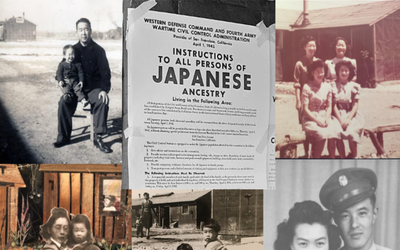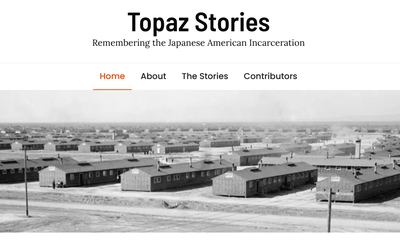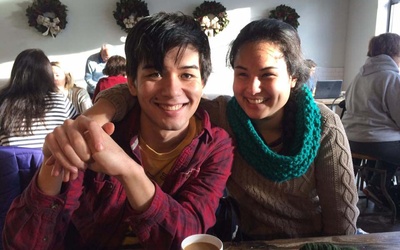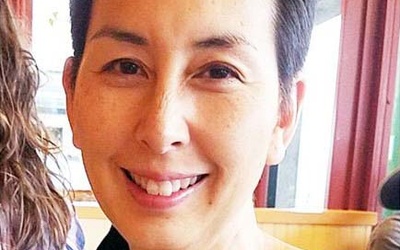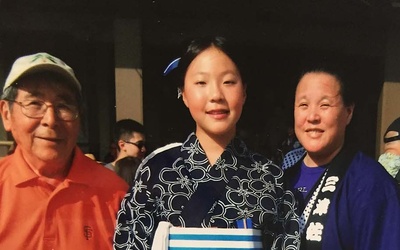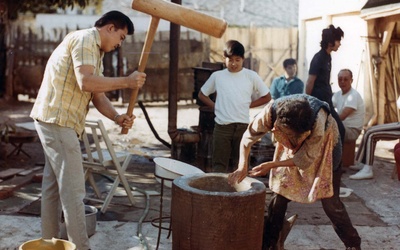Power of Our Stories

This series features projects that help to preserve and share Nikkei stories in different ways—through blogs, websites, social media, podcasts, art, films, zines, music, merchandise, and more. By highlighting these projects, we hope to share the importance of preserving and sharing Nikkei stories and inspire others to create their own.
If you have a project you think we should feature, or are interested in volunteering to help us conduct future interviews, email us at Editor@DiscoverNikkei.org.
Logo design: Alison Skilbred
Stories from this series
On Topaz Stories and “Authentic Voice”: A Conversation With Writer And Editor Ruth Sasaki - Part 2
Oct. 15, 2021 • Tamiko Nimura
Read Part 1 >> Tamiko Nimura: As editor/curator, are there any particular segments in Topaz Stories that resonate for you? Ruth Sasaki: There are stories that are a miracle for the recall of specific details by someone who was a young child in camp, like Jon Yatabe’s “Toy Story.” Another story, “Father and Son” by Dan Hirano, who was actually born in Topaz, grabbed me for its distinctive voice and the image that came to mind as I read it …
On Topaz Stories and “Authentic Voice”: A Conversation With Writer And Editor Ruth Sasaki - Part 1
Oct. 14, 2021 • Tamiko Nimura
As a college student at UC Berkeley in the 1990s, I was searching for Sansei writers who wrote about the wartime incarceration of Japanese Americans. I was delighted to find the work of Janice Mirikitani and Ruth Sasaki. Sasaki’s book, The Loom and Other Stories, is one that I’ve kept close to my heart and on my shelf for decades now. So it was a delight to see that she had started a blog in 2015, and to see that …
Campu, the Podcast: Reanalyzing Japanese American Incarceration in the 21st Century, How is it relevant today?
Dec. 22, 2020 • Kate Iio
Introducing Campu: a podcast that offers a fresh, raw, and insightful scope into the diverse experiences of Japanese incarceree daily life during World War II. Campu analyzes the political, racial, social, psychological, physical, and systemic barriers that Japanese immigrants and Japanese Americans endured during this event in history. The podcast also goes above and beyond by identifying and discussing how a collection of these events have created a long-lasting impact on our history today. By bringing together various unheard anecdotes, …
Michelle Kumata, A Japanese-American Artist with Brazilian Ancestral Roots
Nov. 23, 2020 • Elaine Ikoma Ko
Seattle native Michelle Kumata’s artistic journey has taken her across the country to New York and across the hemisphere to Brazil, not only to discover her identity and legacy but to express it through her work. By exploring her family’s Japanese-Brazilian (JB) roots, she shares her story of how, through oral histories and visual art, she has established a legacy for future generations of her family. A shy, only child growing up, Michelle has become an accomplished artist whose work …
Japanese Incarceration: Making a Difference One Person at a Time
Aug. 12, 2020 • Marissa Shoji
My name is Marissa, and I'm a Girl Scout from South San Jose, California. I love the smell of coffee, a good book, the sea at sunset, a couple of cats, and most of all, keeping history alive. I am currently working on my Gold Award, which is the highest award a Girl Scout can earn. It requires over 80 hours of work and leadership on a project that helps the community and has sustainability. I am a fourth generation …
Bridging the Cultural Gap with Stories: The Zentoku Foundation
April 14, 2020 • Daijiro Don Kanase
In 2018, Mark Nakakihara founded the Zentoku Foundation, which is a non-profit organization dedicated to preserving stories of various generations of Japanese Americans. The Zentoku Foundation strengthens the Japanese American community by providing an enriching website and e-newsletters for all generations to cherish amazing stories, news, and upcoming events. The Zentoku Foundation is unique because its meticulously delivered stories engulf its followers with deep, familial emotions. Much like the captivating emotions a bonsai enthusiast feels when observing the pure serenity …

